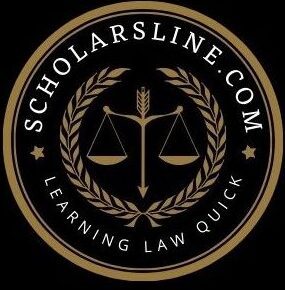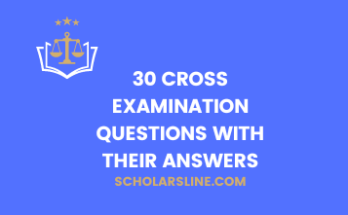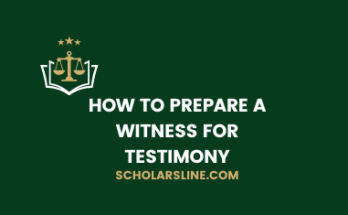30 Cross Examination Questions in Court Trials
Introduction:
Cross-examination is a pivotal aspect of any legal proceeding, serving as a tool for testing the credibility, accuracy, and reliability of witnesses’ testimonies. Mastering this art requires not only legal acumen but also strategic questioning to uncover inconsistencies, biases, or hidden motives. In this article, we delve into 30 cross-examination questions categorized to cover various facets of witness testimony, aiming to equip legal practitioners with a comprehensive toolkit for effective interrogation.
I. Witness Credibility:
1. Can you confirm your understanding of the oath you took before testifying today?
2. Have you ever been convicted of a crime or been involved in any legal proceedings that could affect your credibility as a witness?
3. Can you describe your relationship with [opposing party]? Is there any bias or conflict of interest influencing your testimony?
4. How well do you recall the events in question, and what steps have you taken to ensure the accuracy of your testimony?
5. Have you made any prior inconsistent statements regarding the matter under consideration?
II. Observation and Perception:
6. Were you in close proximity to the incident when it occurred?
7. What were the lighting and weather conditions like at the time of the incident?
8. Can you describe any distractions or obstacles that might have affected your ability to observe the events accurately?
9. Did you have any physical impairments or limitations that could have hindered your perception of the incident?
III. Memory and Recollection:
10. How much time elapsed between the incident and your first statement regarding it?
11. Have you discussed the events with anyone else prior to your testimony today?
12. Can you recall any specific details or conversations from the day of the incident?
13. Are there any inconsistencies between your current testimony and previous statements you’ve made?
IV. Motives and Bias:
14. Have you been promised any favors, compensation, or incentives in exchange for your testimony?
15. Do you have any personal or professional affiliations that could influence your stance on this matter?
16. Are you aware of any potential consequences for yourself or others based on the outcome of this case?
17. Have you harbored any grievances or animosity towards the opposing party or their representatives?
V. Expertise and Qualifications:
18. Can you provide your credentials and qualifications in [relevant field]?
19. How frequently do you encounter situations similar to the one in question in your professional capacity?
20. Are there any limitations to your expertise or areas where you defer to the judgment of others?
21. Can you explain any technical terminology or concepts relevant to your testimony in layman’s terms?
VI. Veracity of Statements:
22. Are you certain that your testimony today is truthful and accurate to the best of your knowledge?
23. Can you clarify any ambiguous or vague statements you’ve made during your testimony?
24. Have you omitted any relevant information that could impact the understanding of this case?
25. Do you understand the legal consequences of perjury or providing false testimony?
VII. Consistency and Reliability:
26. Can you explain any discrepancies between your current testimony and statements made by other witnesses?
27. Have you had the opportunity to review any documents or evidence that might refresh your memory regarding the events in question?
28. Are there any external factors or influences that could have affected the consistency of your recollection?
29. Can you confirm that your testimony aligns with the facts established by the evidence presented in this case?
30. Is there anything else you would like to add or clarify regarding your testimony before we conclude?
Conclusion:
Cross-examination is a multifaceted process that demands careful preparation, strategic thinking, and effective questioning techniques. By employing the 30 cross-examination questions outlined in this article, legal practitioners can skillfully navigate witness testimonies, uncovering inconsistencies, biases, and hidden motives to ensure the fair and just resolution of legal disputes. Through diligent interrogation and adherence to the principles of truth and impartiality, cross-examiners can uphold the integrity of the legal system and safeguard the rights of all parties involved.
READ ALSO: How to Raise the Best Cross Examination Questions
10 Cross Examination Questions against an Investigating Police officer
Cross-examining a police officer involved in an investigation requires careful scrutiny to assess the integrity of the investigation, the officer’s actions, and adherence to legal procedures. Here are 10 cross-examination questions to challenge the credibility and reliability of the investigating police officer:
1. Investigative Procedures:
– Can you outline the specific procedures followed during the investigation of the case in question?
– Were these procedures conducted in accordance with departmental protocols and legal guidelines?
2. Evidence Collection:
– How was evidence collected and preserved at the crime scene?
– Can you confirm that proper chain of custody protocols were followed to prevent contamination or tampering of evidence?
3. Witness Interviews:
– Did you interview all relevant witnesses and document their statements accurately?
– Were there any witnesses whose statements were not included in the investigative report, and if so, why?
4. Search and Seizure:
– Did you obtain valid warrants for any searches conducted during the investigation?
– Were there any instances where evidence was seized without a warrant, and if so, under what circumstances?
5. Confessions or Statements:
– Did the suspect provide any confessions or incriminating statements during the course of the investigation?
– Were these statements obtained voluntarily and in compliance with Miranda rights?
6. Use of Force:
– Were there any instances where physical force or coercion was used during the investigation, either during arrests or interviews?
– Can you provide justification for the use of force in those situations?
7. Witness Credibility:
– How did you assess the credibility of witnesses interviewed during the investigation?
– Were there any concerns raised regarding the reliability or bias of certain witnesses?
8. Documentation and Record-Keeping:
– Can you confirm that all relevant information, including investigative notes, reports, and correspondence, was accurately documented and retained?
– Were there any discrepancies or omissions in the investigative records?
9. Expert Testimony:
– Did you consult with any forensic or technical experts during the investigation, and if so, what were their findings?
– Can you provide assurance that expert testimony was based on sound scientific principles and methodologies?
10. Objectivity and Bias:
– Can you disclose any personal or professional biases that might have influenced your approach to the investigation?
– Were there any external pressures or influences that could have compromised the objectivity of the investigation?
By posing these probing questions, cross-examiners can evaluate the thoroughness, fairness, and professionalism of the investigating police officer’s conduct, ultimately aiming to ensure that the defendant’s rights are upheld and that justice is served impartially.
Thanks for going through this post; 30 Cross Examination Questions in Court Trials.




